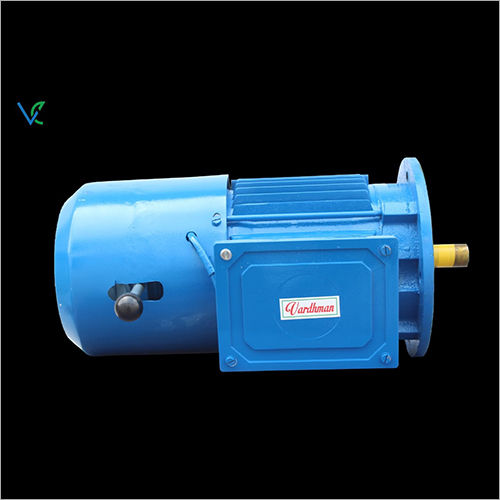
Industrial Brake Motor
Product Details:
- Product Type Industrial Brake Motor
- Frequency (MHz) 50-60 Hertz (HZ)
- Protect Feature Waterproof
- Phase Single Phase
- Efficacy IE3
- Starting Type Electric Start
- Color Blue
- Click to View more
Industrial Brake Motor Product Specifications
- Yes
- Blue
- Single Phase
- IE3
- Industrial Brake Motor
- Waterproof
- 50-60 Hertz (HZ)
- Electric Start
Industrial Brake Motor Trade Information
- All India
Product Description
The following are some essential qualities and traits of commercial braking motors:
1. Electric Motor: Industrial brake motors sometimes have both a mechanical braking mechanism and a regular electric motor. The brake system regulates the stopping or holding torque while the electric motor delivers the rotational power.
2. The brake mechanism, which is a crucial component of the motor, is in charge of producing the braking action. Typically, the brake system uses a spring-applied, electrically released design. The brake is removed when power is provided to the brake coil, allowing the motor to turn. The brake is activated, causing the motor to stop or retain its position, when power is cut off or in the event of a power outage.
3. Brake Type: Industrial brake motors can make use of electromagnetic, disc, drum, or shoe brakes, among other types of brakes. The required torque and speed parameters, as well as the application requirements, determine the precise brake type.
4. Relays, contactors, and motor starters are some of the parts that make up an industrial brake motor's control circuit. These parts provide the necessary electrical connections and control signals to energise or de-energize the brake coil. Control circuitry makes ensuring that the motor and brake operations are properly coordinated.
5. Industrial brake motors come in a variety of power ratings, speeds, and torque capacities to meet the needs of various applications. In severe industrial situations, they are intended to provide strong torque production, accurate stopping power, and dependable performance.
6. Industrial braking motors frequently have safety mechanisms to stop accidental activation and guarantee worker safety. These could include fail-safe braking designs, heat protection tools, and motor overload safeguards.
For industrial applications, industrial braking motors come with a number of benefits:
- Controlled halting: The braking system's integration enables controlled, accurate halting of the motor's rotation, enhancing safety and operating effectiveness.
- Holding Torque: When the brake is engaged, industrial brake motors can produce holding torque, enabling them to hold a weight in place without the use of extra external devices.
- Durability and dependability: Designed for heavy-duty industrial applications, these motors offer sturdiness and long-lasting performance even under challenging operating circumstances.
- Application Flexibility: Industrial brake motors can be utilised in a wide range of industrial applications, such as machine tools, material handling systems, lifting and handling equipment, and more.
The precise torque and speed requirements, duty cycle, power supply, mounting possibilities, environmental conditions, and compliance with applicable safety regulations are all things to take into account when choosing an industrial brake motor.
Overall, industrial brake motors provide a dependable and effective solution for situations where precise control of stopping and holding torque is necessary to ensure the safe and effective functioning of machinery and equipment.
FAQ
1. What exactly is a commercial brake motor?
Ans - An industrial motor that combines a brake and a motor is referred to as a brake motor. The brake enables fine speed control and rapid, reliable stopping.
2. What benefits might a system expect from using a brake motor?
Ans - Better safety, better performance, and more precise control are some benefits of using a braking motor in an industrial system. By allowing quicker stops and better motor speed control, it also improves the system's energy efficiency.
3. For what kinds of uses are braking motors employed?
Ans - Machine tools, conveyor belts, lifts, and many other industrial applications all make use of brake motors.
4. What kind of upkeep is necessary for a brake motor?
Ans - A brake motor should undergo routine maintenance that includes testing the brakes for wear, looking at the connections, and replacing any worn parts as necessary.
5. What security components are built into braking motors?
Ans - Typical safety features on brake motors include overload protection, maintenance warning lights, and a fail-safe brake control.

Price:
- 50
- 100
- 200
- 250
- 500
- 1000+










